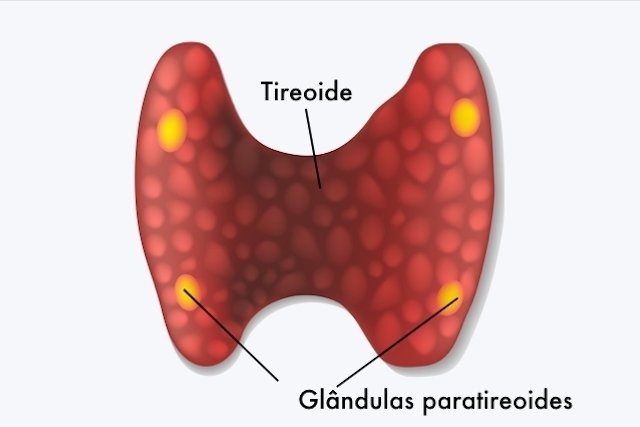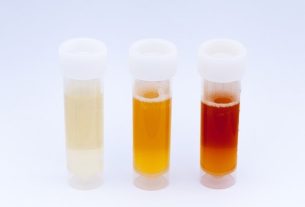Parathyroid hormone, also known as PTH, is a hormone produced by the parathyroid glands, which are small glands located in the thyroid and which is metabolized by the liver and excreted by the kidneys. PTH’s main function is to regulate calcium levels in the body, as it stimulates the release of calcium into the plasma, acting directly on the bones, kidneys and intestine.
Thus, the PTH test may be indicated when there are high or low levels of circulating calcium or when there is greater fragility in the bones, for example.
Although preparation is not necessary before the exam, it is important to inform the doctor about the use of any medication, especially sedatives, such as Propofol, as they can reduce the concentration of PTH and, consequently, interfere with the result. Furthermore, it is recommended that the collection be carried out in a reliable laboratory with trained professionals, as hemolysis, which is often caused by collection errors, can interfere with the test results.

When is the PTH test indicated?
The dosage of parathyroid hormone is recommended by the doctor to investigate the possible cause of the decrease or increase in calcium levels in the blood and, therefore, it is indicated in suspected hypo- or hyperparathyroidism, which can result in an increase or decrease in circulating calcium levels, respectively.
Therefore, due to the change in calcium levels, there may be an increased risk of developing complications. Therefore, the PTH test can also be indicated to investigate the cause of kidney or heart failure, for example, and can also be regularly indicated for patients diagnosed with these diseases, as a form of monitoring.
How the exam is carried out
The test does not require any preparation, however it is recommended that the collection be done in the morning, as the PTH concentration can vary throughout the day. The collected blood is sent to the laboratory, where it is processed and placed in a device where analyzes are carried out. The result is normally released approximately 24 hours after collection.
The activity of PTH is regulated by another hormone, calcitonin, which begins to be produced when calcium levels are very high, thus reducing the production of PTH and stimulating the excretion of calcium in the urine, for example. Learn more about calcitonin.
What does the result mean
The normal value of parathyroid hormone in the blood may vary depending on the laboratory, as different analysis techniques can be performed. In general, it is considered normal when the PTH level in the blood is between 12 and 65 pg/mL.
High paratormônio
High parathyroid hormone is when levels are above 65 pg/mL, and is normally indicative of hyperparathyroidism, especially if the calcium level in the blood is high. In addition to hyperparathyroidism, PTH may be elevated in the case of chronic renal failure, vitamin D deficiency and hypercalciuria. Understand what hyperparathyroidism is and how to treat it.
Low parathyroid hormone
Low parathyroid hormone is when levels are below 12 pg/mL, and is normally indicative of hypoparathyroidism, especially if blood calcium levels are low. Low or undetectable PTH may also be indicative of an autoimmune disease, incorrect development of the glands or after surgical procedures. See what hypoparathyroidism is and how to identify it.
Bibliography
- PORTO, Rafael A.; TRUITE, Marília R.; BUCHARLES, Sérgio Elias G.; HAUSER, Aline B. Secondary hyperparathyroidism: a complication of Chronic Kidney Disease. Brazilian Journal of Clinical Analysis. 2016
- LACATIVO, Paulo Gustavo S.; FILHO, Pedro José P.; GONÇALVES, Manuel DC; FARIAS, Maria LF Indications for parathyroidectomy in hyperparathyroidism secondary to chronic renal failure. Arq Bras Endocrinol Metab. Vol 47. 6 ed; 2003

Sign up for our newsletter and stay up to date with exclusive news
that can transform your routine!
Warning: Undefined array key "title" in /home/storelat/public_html/wp-content/plugins/link-whisper-premium/templates/frontend/related-posts.php on line 12
Warning: Undefined array key "title_tag" in /home/storelat/public_html/wp-content/plugins/link-whisper-premium/templates/frontend/related-posts.php on line 13



